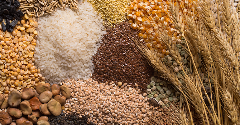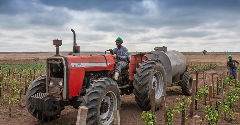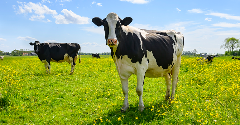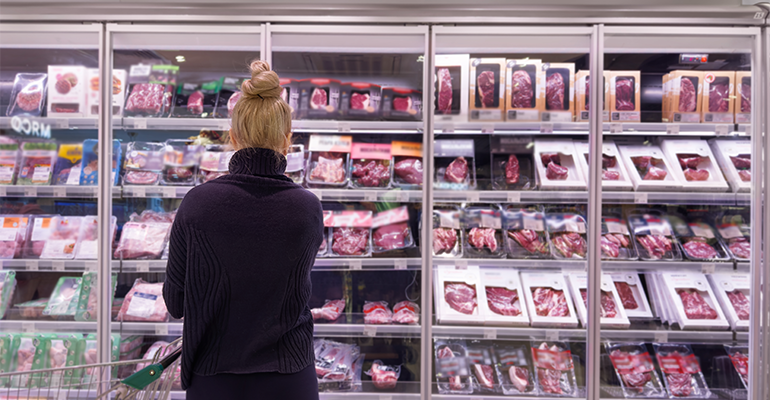News
Givaudan launches i-MAPS
9 Oct 2019Givaudan Active Beauty has unveiled what it claims is the first instant microbiome analysis and profiling system (i-MAPS) allowing customers to expand their product offering to include skincare products tailored to the unique microbiome of their consumers.
Described as a scientific breakthrough combining microbiome research and new technology, it is said to open the door for customers to explore the personalisation of beauty products involving the skin microbiome.

The company says that the profiling system is a major scientific achievement in microbiome research, bringing new opportunities to the cosmetic industry. Using bioinformatics, i-MAPS uses a combination of different techniques in a specific sequence to create individual profiles by mapping the skin microbiome in approximately seven hours compared to seven days for a standard analysis. Every profile provides exclusive information about the bacteria present on the microbiome and correlates it to a skin type such as oily, dry, sensitive, or ageing.
Laurent Bourdeau, Head of Active Beauty, said: “The creation of i-MAPS is not only an impressive achievement in microbiome research, but it’s also a game changer for the world of cosmetics. We are very proud to create new revolutionary cosmetic innovations supported by a highly experienced and dedicated team of scientists who continue to advance our research of the microbiome. This technological advancement is the first step into unclaimed territory creating new strategic opportunities for our customers to explore the personalisation of beauty products with microbiome data in the future.”
Responding to consumer demands for more tailored beauty products, the new technology will, according to Givaudan, allow its customers to include the latest microbiome research into their products to help consumers fine-tune their skincare routines. Globally, the company says, 73% of people said that they are willing to try cosmetic products with a skin microflora concept and 78% recognise that when skin microflora is out of balance, it can result in skin-related issues or diseases.
Related news

Sustainable grains present a healthy growth opportunity
3 Oct 2024
Food insights provider SPINS unveils the latest trends in the sustainable grains field, exploring how seven leading grains show healthy growth despite challenges in the global value chain.
Read more
Will we see a wave of NPD that focuses on insulin management?
1 Oct 2024
As a new study finds protein and fats can help manage insulin, food manufacturers are building on emerging GLP-1 platforms and supporting nutritional guidance.
Read more
New environmental food scoring standards emerge
30 Sep 2024
EIT Food and Foundation Earth collaborate to launch environmental food scoring for products entering the global supply chain.
Read more
Africa progresses with food transformation strategy
19 Sep 2024
Large-scale efforts are underway to drastically change the African food sector with a $61 billion (€55 bn) set of proposed transformation plans to be implemented across forty countries. Yet there are concerns that this initiative severely jeopardises s...
Read more
European Commission releases new supply chain recommendations
6 Sep 2024
The European Union’s (EU) legislative arm publishes its latest guidance on protecting the market’s food supply chain against current and future crises.
Read more
Tesco trials methane mitigation supplement for dairy cattle
5 Sep 2024
Tesco is trialing a methane-reducing feed supplement for one of its key UK dairy farms, sustainable UK milk producer Grosvenor Farms.
Read more
European consumers want more freedom to choose biotech-based food
3 Sep 2024
Survey findings point to growing levels of interest in cultivated meat as European consumers say they want the freedom to choose the lab-based products.
Read more
Will ‘foie gras’ become the EU’s first approved cultivated meat?
20 Aug 2024
French startup Gourmey has submitted its cultivated foie gras for approval in the European Union (EU), signalling the first application of its kind in the region.
Read more
Europe gravitates to African spices
19 Aug 2024
Shipping delays, limited production output and climate change impact Europe’s spice supply, creating opportunities for African brands to enter the captive market.
Read more
Paris Olympics: Food and beverage brands champion health, fun, and sustainability
5 Aug 2024
Food and beverage brands are aligning with the Paris Olympics 2024 Food Vision, which emphasises sustainability, local sourcing, and plant-based diets.
Read more